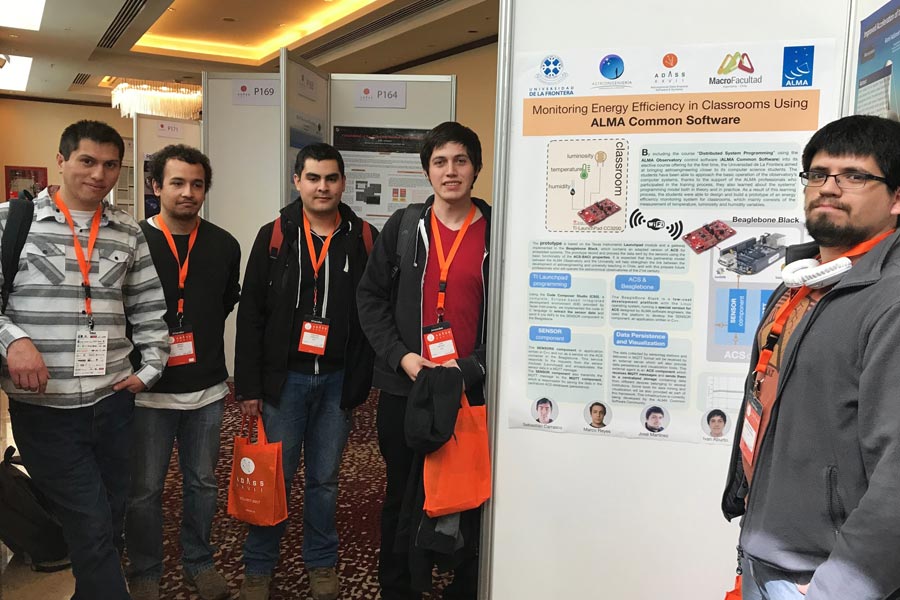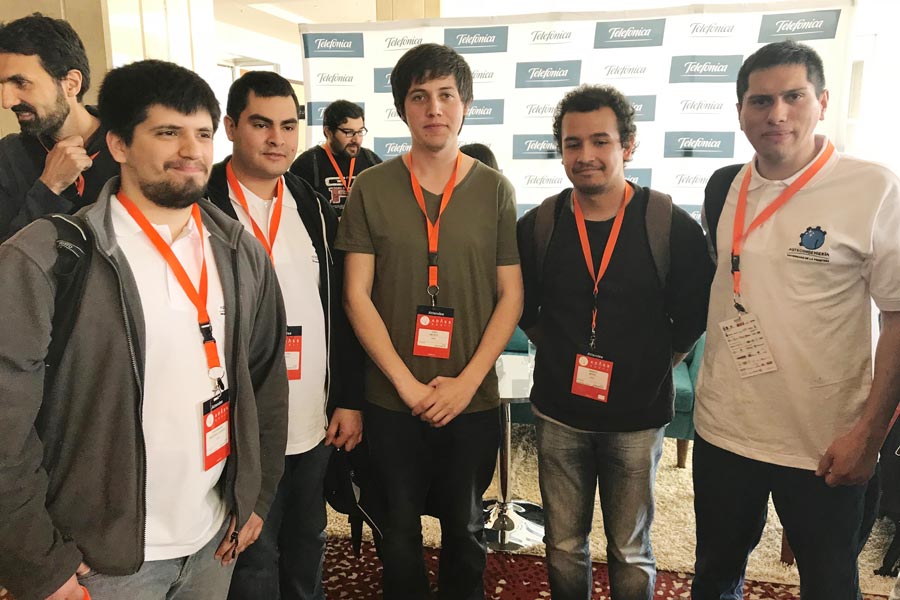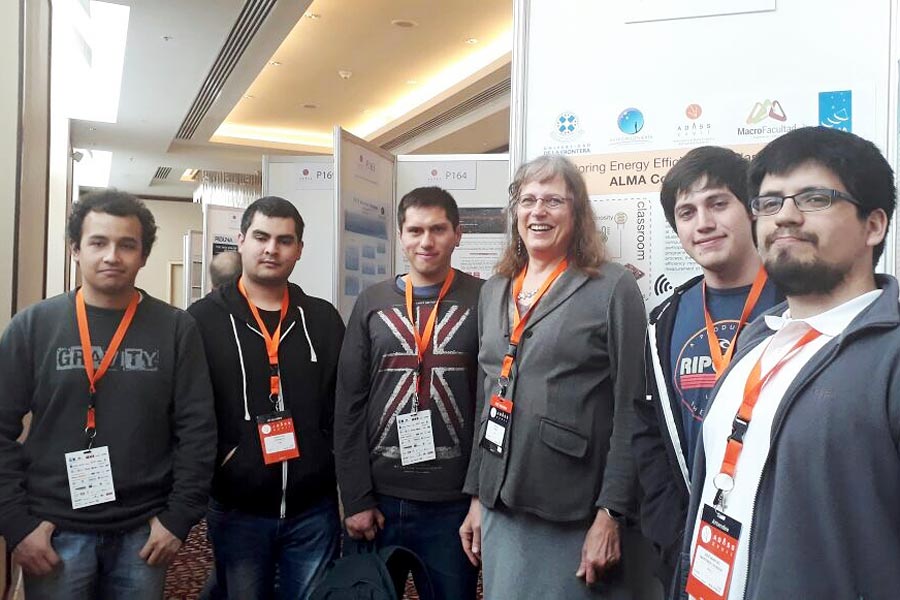|
For the first time, Chile hosted the Astronomical Data Analysis Software & Systems (ADASS) Conference in Santiago, where representatives of 34 different countries came together, among them an UFRO delegation.
|
A delegation of UFRO students and scholars of the Faculty of Engineering participated in the most important astroinformatics conference worldwide, which, for the first time in its 27 years of existence, took place in Chile and Latin America.
The 27th version of the International Astronomical Data Analysis Software & Systems (ADASS) Conferencetook place in Santiago and was organized by the European Southern Observatory (ESO), the Atacama Large Millimeter/Submillimeter Array (ALMA) and the Technical University Federico Santa María.
Representatives of 34 different countries participated in this conference, among them 44 speakers, scholars, professionals in the area of science and engineering, innovators in the development of astronomical data software and systems, and more than 180 scientific posters were presented.
The Universidad de La Frontera was represented by the ASTROUFRO group, composed of undergraduate students of the Civil Industrial Engineeringwith specialization in Computer Science, Computer Engineering and Civil Electronics Engineering Programs. In this context, it is also important to say that, since 2015, the UFRO and ALMA are maintaining a cooperation for the development of academic and professional initiatives and links in the areas of engineering and science.
UFRO PARTICIPATION
The UFRO delegation that participated in this event presented an experimental prototype of a monitoring station for the measurement of environmental variables, which operatesunder the same platform that is used by the ALMA Observatory to control their telescopes.
In this context, the academic member of the Department of Computer Science of the Faculty of Engineering and Scienceand head of the UFRO delegation, Patricio Galeas, commented that “our participation allows to give visibility to the Universidad de La Frontera and positions us as one of the universities that are working on the development of astronomy at a national level, since it is a topic that will become more relevance in Chile during the next years, because the increase in the construction of telescopes in Chile will position our country as a leader in the field of space observation, at the international level”, he stated.
Galeas added that “we think that being present as a universityfrom the beginning in this development gives us an advantage compared to other institutions and offers new opportunities to learn and improve for our students and scholars.”
With regard to the importance of this congress for the students, Galeas said that “the experience has been very positive, since they could interact with top-level specialists who are associated with engineering applications for the astronomical world. At the same time, this participation motivates them to keep working on astroengineering projects and to include new students in this field. In this context, we hope to be able to use the prototype we presented at the conference on a larger scale during the next semester and to create software products for the functioning of the telescopes installed in our country.”
ADASS
Each year, ADASS bringsastronomers, software engineers and data specialists from all over the world together, in order to discuss software and algorithms that are used in all aspects of astronomy.
This is a field of special interest for Chile, since by the year 2020, it is expected that Chile will have 70% of the astronomic infrastructure worldwide. At the moment, there are 5 observatories in Chile and several important projects,what involves data and image processing. This converts Chile into a preferential place and positions the country among the leaders in astroinformatics.
 Written by: Mauricio Antivil Engineering Project 2030
|
 Written by: Mauricio Antivil
Written by: Mauricio Antivil






